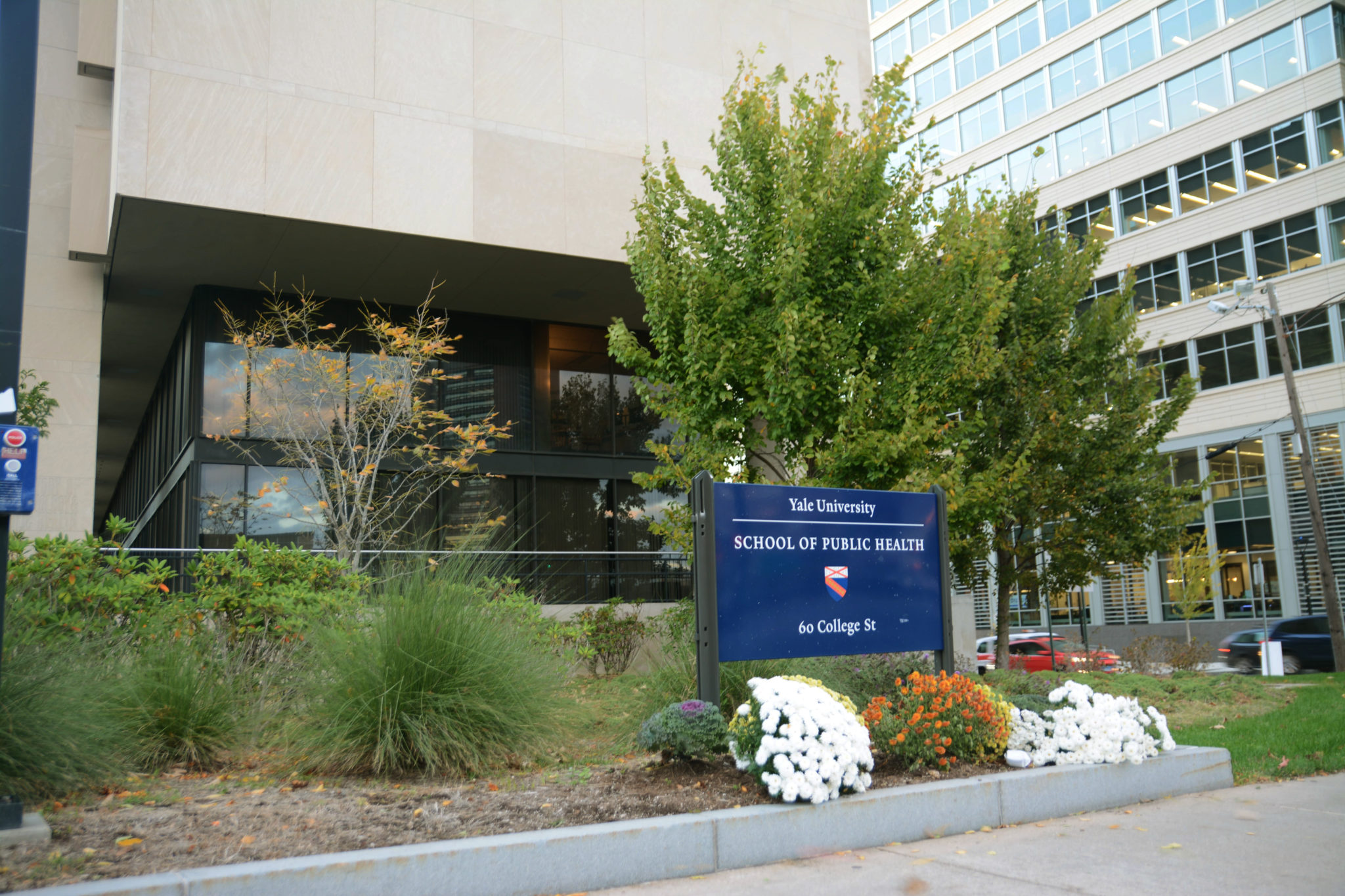Former Pakistani health minister speaks at School of Public Health
Faisal Sultan, who oversaw his government’s response to the COVID-19 pandemic, discussed the use of data and the centralization of government policymaking.

Yale Daily News
As the COVID-19 pandemic began to rage across the globe in 2020, Faisal Sultan found himself in the thick of the crisis. As health minister and special advisor to the prime minister, Sultan was responsible for coordinating Pakistan’s response to the emerging pandemic.
Two years later, Sultan visited the Yale School of Public Health to share lessons he learned from his experience overseeing Pakistan’s COVID-19 efforts as part of the Yale Institute for Global Health’s ongoing “Global Health Conversation Series.”
In a public discussion on Oct. 26 moderated by Director of the Yale Institute for Global Health Saad Omer, Sultan described the challenges Pakistan faced in coordinating a centralized pandemic response and the data-driven methods the country applied to combat the spread of disease.
“I think, generally, people have a poor expectation of a public health response, whereas in this case, I think it was a good response and the public feels it was,” Sultan told the News. “I think it’s very important to share the positive parts of our story.”
To date, according to the World Health Organization, Pakistan has had 1,573,725 confirmed cases of COVID-19 with 30,624 deaths. A total of 313,046,883 vaccine doses have been administered, an effort that Sultan was involved in overseeing.
The “Global Health Conversation Series” aims to feature “today’s pivotal decision-makers in the world of global health,” according to Michael Skonieczny, the Deputy Director of the Yale Institute of Global Health and one of the event’s organizers. The talks are co-sponsored by the Yale Institute for Global Health and a fund from the MacMillan Center for International and Area Studies.
Since the outbreak of the pandemic, according to Omer, the series’ focus has shifted to COVID-19 challenges and responses. Past speakers have included former Secretary of State John Kerry ’66 and Anthony Fauci, the Director of the National Institute of Allergy and Infectious Diseases and the Chief Medical Advisor to the President.
“Given Dr. Sultan’s role as the former minister of health of Pakistan, we wanted to better understand the challenges and lessons learned in responding to a pandemic in a federally devolved health system,” Skonieczny wrote to the News. “We also wanted to get an inside view in responding to a global crisis and the leadership lessons that can be learned.”
During the talk, Sultan, who completed his medical residency at the University of Connecticut and completed a rotation at Yale, described his experience at the helm of Pakistan’s pandemic response. He noted how Pakistan had a relatively “better outcome” than other countries of a similar size and healthcare structures, emphasizing the importance of a centralized and federally coordinated pandemic response that was “coherent, data-driven and flexible.”
Sultan highlighted how Pakistan adopted a data-centric approach to its pandemic response in real-time: COVID-19 tests, positivity and vaccine distribution were linked to Pakistani citizens’ national registration and digital ID. Pakistan’s pandemic response team also used cell phone data to geolocate COVID-19 cases and generate heat maps of COVID-19 hotspots.
“One of the most important things was to have real-time data,” Sultan said. “We were able to figure out the presence of the disease because it was tagged. Several other large federal-structure countries did suffer quite a lot, and relative to them, I think we came out ahead.”
Yet, Sultan identified challenges associated with Pakistan’s response. While Pakistan attempted to use geographic data to create “smart-lockdowns” isolated to specific neighborhoods, Sultan reflects that such specificity could have “been put in a little bit sooner.” He noted that his team could have communicated “the why,” a rationale for pandemic measures, better to the public.
Sultan also detailed the political hurdles associated with communicating the science of the COVID-19 pandemic. Initially, coordinating a federal pandemic response with Pakistan’s provincial governments proved difficult due to parties and officials with different perspectives.
“There was a full rainbow of colors as far as parties were concerned,” Sultan said. “People singing different tunes was initially a challenge. Conversations, reaching out and professional peer-to-peer conversations cobbled together opinions and views.”
For Sofia Rabbani ’25, an in-person attendee at the hybrid event, Sultan’s conversation highlighted differences between the pandemic responses in Pakistan and the United States from the perspective of an insider.
Rabbani told the News that she found the opportunity to hear from a high-level public health official “enriching.” She noted the importance of hearing from perspectives in healthcare outside the United States, a theme that Sultan also told the News he hoped to convey at the event.
“I think the conversations on campus surrounding these topics are really often focused on the US (which makes sense) and other major world powers,” Rabbani wrote to the News, “but a country like Pakistan (which had a very different system to work with) is a really important perspective to center in discussions of global health and worldwide crises such as COVID-19.”
The Yale School of Public Health is located at 60 College Street.







